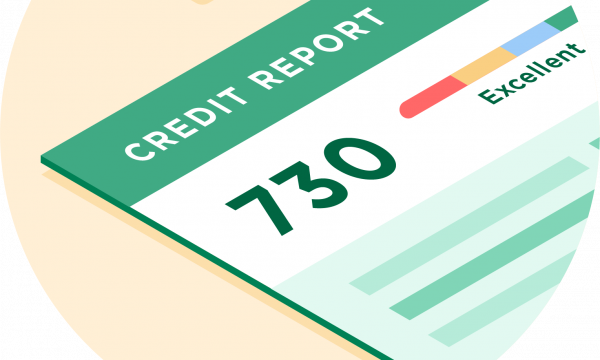Credit Reports: What They Are and How To Read Them
A credit report is a record of all your lines of credit and your payment history. Credit reports can be several pages, and we'll walk you through how to read them.

Many, or all, of the products featured on this page are from our advertising partners who compensate us when you take certain actions on our website or click to take an action on their website. However, this does not influence our evaluations. Our opinions are our own. Here is a list of our partners and here's how we make money.
Credit report definition
A credit report is a detailed record of your lines of credit and your payment history. If you have credit cards, a mortgage or a car loan, you probably have credit reports. If you haven’t established credit yet, you might not have credit reports.
There are three credit bureaus — Equifax, Experian and TransUnion — and they each compile their own credit reports.
» Ready to get started? Get your free credit report from NerdWallet today.
Credit reports reflect your credit history, or your record of managing credit and debt. Your credit reports show if you’ve made late payments or paid bills on time, if you’ve declared bankruptcy, had a repossession, or if you’ve paid off a loan.
Companies use credit reports for many reasons, including to decide whether to approve loans, rentals, insurance policies. Employers might even check your credit reports during the application process.
It's a good idea to review your credit reports regularly, so you can check for errors that might be lowering your credit scores, and find potential identity theft. You can use the dispute process to get mistakes removed, which may help you qualify for credit, or get better terms.
Credit reports are often several pages, and we’ll help you navigate them.
» Dive deeper: Credit score vs. credit report: what’s the difference?
Stress less. Track more.
See the full picture: savings, debt, investments and more. Smarter money moves start in our app.
How to read a credit report and what to look for
If you have credit history, you have a credit report from all three major credit bureaus. Each credit bureau organizes its reports differently and the sections may fall in a different order, but all of your reports have the same basic parts. Here’s what a credit report includes:
Personal information
Your personal information will include names you've used, current and previous addresses and phone numbers, Social Security number — partially masked for security — birthdate, and current and previous employers.
Don't be surprised if there are a few different spellings of your name. Variations you've used on credit applications will pop up, such as married and maiden name, with and without middle name or initial, the short version of your first name, etc.
If one or more of your employers or telephone numbers are missing, it’s not a big deal. But keep an eye out for addresses you don't recognize — especially if you later spot accounts you aren't familiar with.
Get your credit reports in Spanish
🤓 Nerdy Tip
You can request your credit report in Spanish directly from each of the three major credit bureaus:· TransUnion: Call 800-916-8800.
· Equifax: Visit the link or call 888-378-4329.
· Experian: Click on the link or call 888-397-3742.
🤓 Consejo Nerdy
Usted puede solicitar una copia de su informe crediticio (gratis y en español) de cada una de las tres principales agencias de crédito:
· TransUnion: Llame al 800-916-8800.
· Equifax: Visite el enlace o llame al 888-378-4329.
· Experian: Haga clic en el enlace o llame al 888-397-3742.
Accounts and payment history
This section lists all of your accounts that haven’t been defaulted on or gone to collections. This is the heart of your credit report.
Each account has a summary at the top. Make sure you recognize the following items:
- Name and address of the creditor, account number and date opened.
- Status of the account — such as whether it's open or closed or has been transferred — and whether you're current on payments.
- Type of account (credit card, student loan, etc.).
- Whether you’re an individual owner, joint owner or authorized user of the account.
- Credit limit or original amount of the installment loan.
Accounts or personal details on your credit report that don't belong to you could suggest someone has used your information to open fraudulent accounts in your name. This constitutes identity theft, and you should report it immediately.
You'll also see balance and payment information, including the date when the creditor last sent account data to the bureau. Don't expect it to reflect your most updated balance. Your credit reports are continuously updated as new data is reported throughout the month.
For example, even if you pay your credit card in full every month, your report may show a balance if your card activity was reported in the middle of the billing cycle.
Make sure your payment history doesn't show errors, such as a late payment when you paid on time. You’ll also want to make sure your account limits are correct, as this can affect your credit utilization ratio — and that's a big factor in credit scores.
If an account has been closed, your report will note who closed it and when. Closed accounts in good standing can stay on your credit reports for up to 10 years, which is good because the record of on-time payments should help your score. But accounts closed by the creditor because you didn't pay as agreed should fall off seven years after the account first went delinquent.
Negative information, if any
The negative information section will list accounts that haven't been paid as agreed, collections and public records such as bankruptcies. Negative information generally stays on your credit report for seven years, with the exception of Chapter 7 bankruptcies, which stay on your report for 10 years from the filing date.
In this section, you’ll want to make sure any negative information is accurate. If you see incorrect accounts or collections or if something is being listed after it was supposed to have dropped off, immediately start a dispute to get the entries removed from your report.
Inquiries on your credit
This section lists times when someone checked your credit. You’ll see inquiries when you applied for new credit or limit increases, or if you recently completed housing or utility applications. Entries may be separated by type:
- Hard inquiries happen when you authorize a potential creditor to check your file as part of an application. These can cause a small, temporary dip in your credit scores.
- Soft inquiries happen when you check your own credit or a potential creditor sees if it wants to send you a promotional offer. These don’t affect your credit scores.
Both types of inquiries will include the name and address of the organization, as well as the date. Make sure that all hard inquiries were authorized by you and that they fall off your report after two years.
What information is not found on your credit reports?
Your credit reports do not include credit scores. However, the information in your reports is used to calculate your scores. Here’s what else credit reports don’t include:
Salary
It makes a big difference in your day-to-day life, but your salary doesn't appear in your credit reports, and it doesn't affect your credit scores.
Employment status
Credit reports might list your employers, but they don’t say whether or when your employment ended. The information is for identification purposes and comes from your past credit applications.
Marital status and spouse’s credit history
You and your spouse will each have separate credit reports, and their credit won't affect yours. But take note: Accounts you open together — a mortgage or shared credit cards — do show up on both credit reports, and mistakes such as late payments could affect you both.
Assets
Your bank balances, retirement accounts such as 401(k)s, and investments or brokerage accounts aren't listed on your credit reports.
401(k) loans
When you borrow money from yourself, it doesn't appear on your credit reports.
If you see errors, dispute them
If you spot inaccuracies that may be lowering your scores, gather documentation to back up your claim. You can dispute credit report errors with the credit bureau showing them. In other words, not every error will be reflected in every credit report. It might just be an issue with one credit bureau.
You'll need to provide copies of documents proving your identity and showing why the item is wrong. The bureau has 30 days to investigate and respond, or 45 days if you dispute after receiving your credit report from AnnualCreditReport.com. Submitting new information or evidence during the 30-day window can also trigger a 15-day extension.
How to get your free credit report information
You can get free credit report information in two ways:
- You're entitled to get free weekly reports directly from the three major credit bureaus — Experian, Equifax and TransUnion — by using AnnualCreditReport.com.
- You can get a free credit report from NerdWallet. NerdWallet's credit report includes a VantageScore 3.0, calculated using TransUnion data, and it updates weekly.
Stress less. Track more.
See the full picture: savings, debt, investments and more. Smarter money moves start in our app.
Frequently Asked Questions
How can I see what's on my credit report?
You can request your free credit reports from the three major bureaus by using AnnualCreditReport.com or a personal finance site that provides free credit report details, like NerdWallet. You can request your credit report in Spanish directly from the credit bureaus. Then, review the information and check for inaccuracies.
What do the codes on my credit report mean?
Sometimes your credit report will include reason codes that tell you about your score, especially if you were recently declined when applying for credit. An example might be 87: Unpaid collections. The codes are unique for the two major scoring companies, FICO and VantageScore. VantageScore allows you to search for codes, their meaning and tips to build your score using ReasonCode.org.
Article sources
NerdWallet writers are subject matter authorities who use primary,
trustworthy sources to inform their work, including peer-reviewed
studies, government websites, academic research and interviews with
industry experts. All content is fact-checked for accuracy, timeliness
and relevance. You can learn more about NerdWallet's high
standards for journalism by reading our
editorial guidelines.
Related articles









